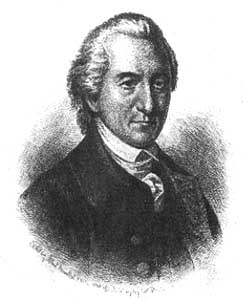17 Jul John Dickinson, Divine Providence & Our Freedoms
 Progressive Christian living, we turn to John Dickinson, a less widely-known Father from Philadelphia who fought during the American Revolution and served as a Pennsylvania delegate to the First Continental Congress in 1774 and the U.S. Constitutional Convention of 1787. Dickinson is perhaps most famous for his declaration to King George III that Americans were resolved to die free men rather than live slaves.
Progressive Christian living, we turn to John Dickinson, a less widely-known Father from Philadelphia who fought during the American Revolution and served as a Pennsylvania delegate to the First Continental Congress in 1774 and the U.S. Constitutional Convention of 1787. Dickinson is perhaps most famous for his declaration to King George III that Americans were resolved to die free men rather than live slaves.
The following passage is taken from John Dickinson’s “Letters from a Farmer in Pennsylvania to the Inhabitants of the British Colonies.” Here we find Dickinson, the former Progressive Christian President of Pennsylvania, writing eloquently on the freedom that is granted to us by God, and the vigilance that is required to retain that freedom. His comment regarding how our freedoms can be gradually usurped has special resonance for Americans today.
I am no further concerned in anything affecting America, than any one of you; and when liberty leaves it, I can quit it much more conveniently than most of you. But while that Divine Providence which gave me existence in a land of freedom permits my head to think, my lips to speak, and my hand to move, I shall highly and gratefully value this blessing I’ve received, and I’ll take care that my silence and inactivity shall not give my implied assent to any act, degrading my brethren and myself from the birthright, wherewith heaven itself “hath made us free.”
[With Regards to Great Britain] All artful rulers, who strive to extend their power beyond its just limits, try to give to their attempts as much semblance of legality as possible. Those who succeed them may then venture to go a little further; for each new encroachment will be strengthened by the former. In other words, that which is now supported by examples, grows old, and eventually become another example to support fresh usurpations.
A FREE people therefore can never be too quick in observing, nor too firm in opposing the beginnings of alterations in form or reality regarding those institutions established for their security. The first kind of alteration leads to the last. Yet, on the other hand, nothing is more certain than that our forms of liberty may be retained even when the literal substance is gone. In government, as well as in religion, “The letter killeth, but the spirit giveth life.”1
- The above passage from John Dickinson was very lightly edited to make it easier to read by modern readers. [↩]
